Publications
Articles, publications, books, tools and multimedia features from the U.S. Institute of Peace provide the latest news, analysis, research findings, practitioner guides and reports, all related to the conflict zones and issues that are at the center of the Institute’s work to prevent and reduce violent conflict.
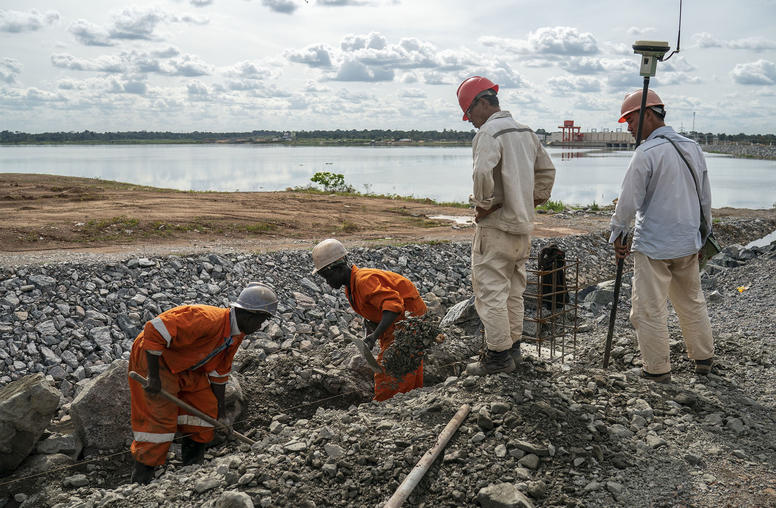
In Africa, U.S. Should Focus More on Democracy, Less on China
Even as the United States draws lessons from its unsuccessful, 20-year effort to build a sustainable peace in Afghanistan, it is shaping policies to engage the political and economic rise of Africa. Both the shortcomings in Afghanistan and the opportunities of Africa underscore the imperative of building policy on a full appreciation of local conditions. Yet on Africa, China’s growing presence has seized Americans’ political attention, and scholars of African politics say this risks distracting near-term U.S. policymaking. A requisite for U.S. success in Africa will be to focus on Africans’ desires—which include an ambition to build their futures by democratic means.

A Sahel Town Builds a Way to Improve Reforms—and Foreign Aid
This year’s escalation of violent turmoil in Africa’s Sahel—widened jihadist attacks, military coups or attempts in four nations, and continued high civilian casualties—underscores that years of work to reinforce military and police forces have failed to reduce instability. To undercut extremism and violence, countries must improve governance, and recent analyses underscore the particular need to build people’s confidence that their governments can provide justice and fair resolutions of popular grievances. Such change is an immensely complex task—and one town in Burkina Faso has shaped a plan for local reforms with a process to manage that complexity.

Une ville du Sahel conçoit un moyen d'améliorer les réformes – et l'aide internationale
La recrudescence cette année des troubles violents dans le Sahel en Afrique – des attaques djihadistes élargies, des coups d'État ou des tentatives militaires dans quatre pays, ainsi que le nombre constamment élevé de victimes civiles – souligne que des années de travail pour renforcer les forces militaires et policières n'ont pas réussi à réduire l'instabilité. Pour réduire l'extrémisme et la violence, les pays doivent améliorer la gouvernance, et des analyses récentes soulignent le besoin particulier de renforcer le sentiment des gens que leurs gouvernements peuvent assurer la justice et trouver des résolutions équitables aux griefs populaires. Un tel changement est une tâche extrêmement complexe et une ville du Burkina Faso a élaboré un plan de réformes locales avec un processus pour gérer cette complexité.
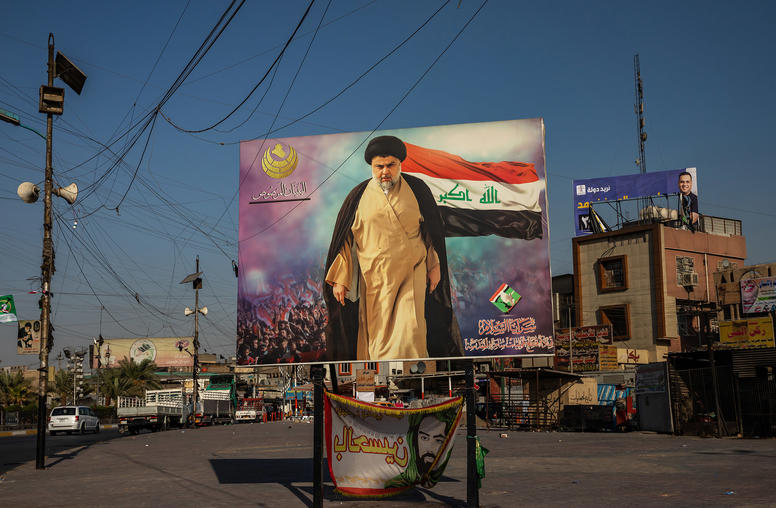
Iraq’s Election Raises More Questions Than Answers
Muqtada al-Sadr, a Shia cleric whose Mahdi Army followers battled U.S. forces during the years of the occupation, made big gains in Iraq’s parliamentary election on October 10. His victory could pose problems for the United States and Iran. But despite the Sadrist List’s electoral success, it is not a given that al-Sadr will be the next man to lead Iraq, or even be the only kingmaker. USIP’s Elie Abouaoun examines the outcome of the election, the electoral process and the implications for Iraq’s future.
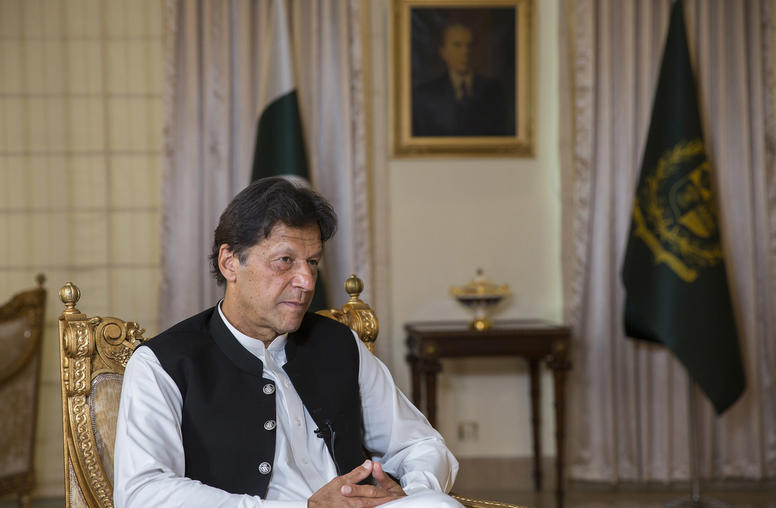
Pakistan’s Shifting Political and Economic Winds
There was an air of optimism in May 2021, when Pakistan’s finance minister, Shaukat Tarin, told Bloomberg that his government would spend almost $6 billion to create jobs and stimulate growth. The aim, he argued, was to achieve a GDP growth rate of over 5 percent. Fast forward to October and the tone has significantly changed, with the finance minister informing an audience in Washington that growth had to be moderated to prevent macroeconomic risks from materializing, meaning that Pakistan cannot afford to grow too fast.
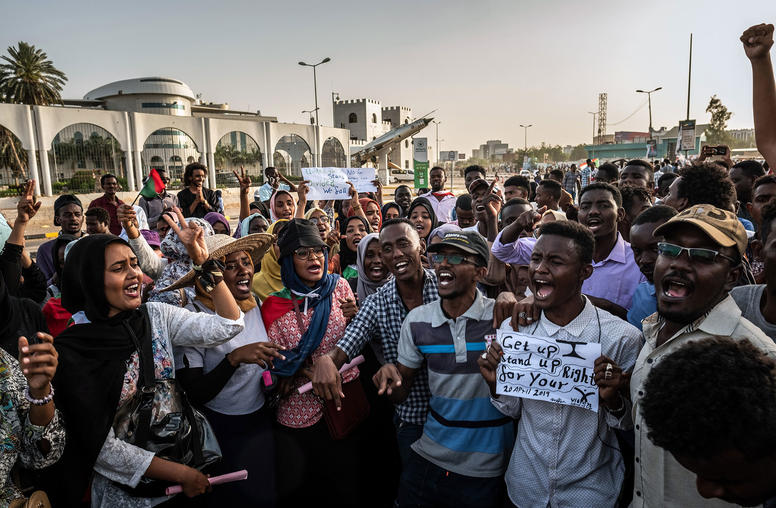
Dissecting Sudan’s Coup
On October 25, Sudan’s military detained the country’s prime minister and key civilian leaders, dissolved the government and declared a state of emergency. The coup, which has put in doubt Sudan’s transition to democracy, quickly prompted protests in the streets of the capital Khartoum and other cities. Some protesters were killed after being fired on by security forces and calls for mass protests on October 30 are growing. USIP’s Joseph Tucker and Manal Taha analyze what the latest developments in Sudan mean for the country and consider the options for the United States to respond to this crisis.
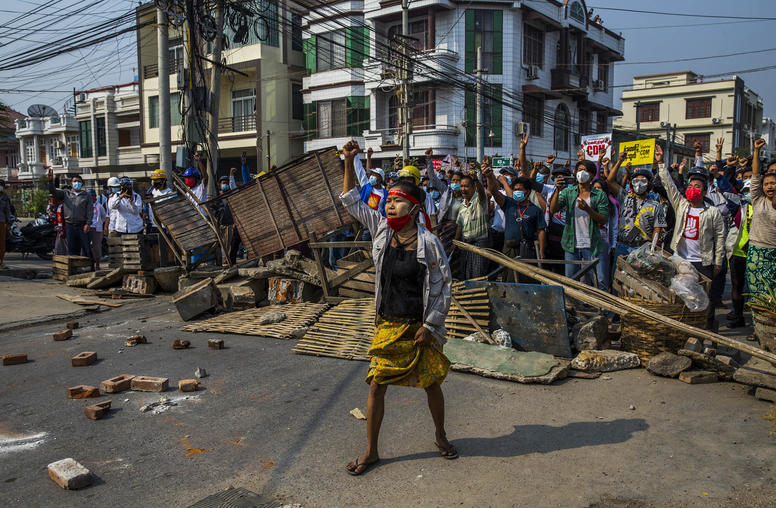
Myanmar’s Unity Government Meets with NSA Sullivan, Gains Further Traction
U.S. National Security Advisor Jake Sullivan recently met with representatives of Myanmar’s National Unity Government (NUG) — a shadow government representing the lawmakers elected by the people in the November 2020 election. The meeting boosted the NUG’s regional and international profile as an alternative to the brutal violence of the Burmese military, which has failed to gain control over the country since last February’s coup. But questions remain about whether the NUG and the disparate ethnic armed groups, political parties and civil society leaders that reject military rule can find common ground beyond a shared enemy.
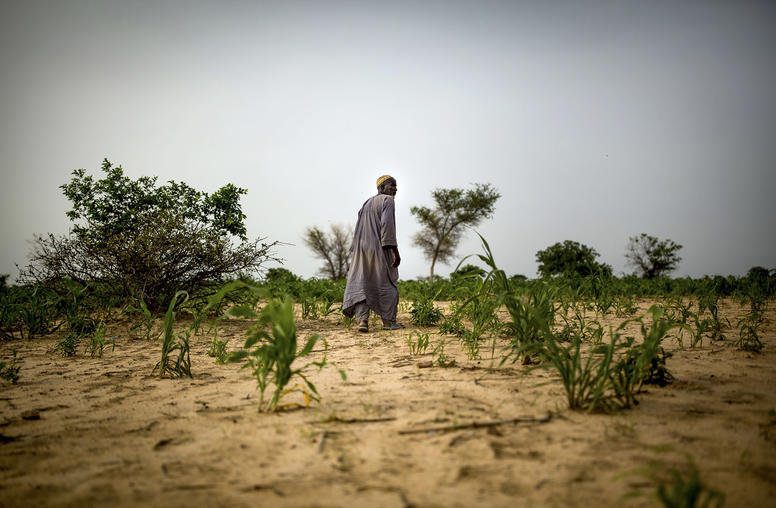
Facing Climate-Driven Migration and Displacement Head-On
In the run-up to the COP26 summit on climate change, the U.S. government released its Report on the Impact of Climate Change on Migration on October 21 — one of three major climate reports, along with the National Intelligence Estimate and the climate risk analysis by the Department of Defense, from the Biden administration. With these reports, the U.S. government now formally recognizes that climate change is likely to contribute to significant displacement and migration, and with it, political and social instability that jeopardize U.S. interests.
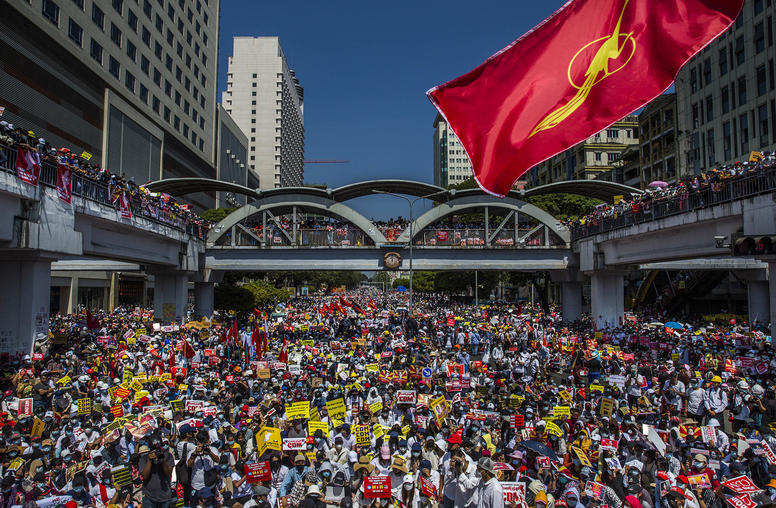
A New Myanmar Forum Aims to Unite Democratic Forces
Since the Myanmar military overthrew the country’s elected government early this year, the forces of resistance have set two immediate objectives: Prevent the generals from gaining military and administrative control of the country, and unify their own diverse and fractious democracy movement. The movement has made progress toward the first goal. On the second, a shared vision of the future is yet to emerge, as divergent stakeholders struggle to overcome historical grievances.
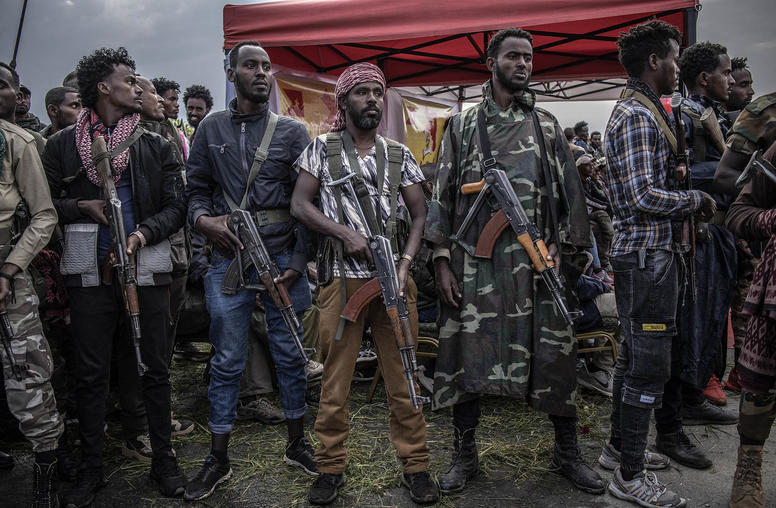
U.S. Urges Ethiopia to ‘Give Peace a Chance’
The United States’ top priority is the “unity and integrity of the Ethiopian state” and its “commitment to the Ethiopian people,” U.S. Special Envoy for the Horn of Africa Jeffrey Feltman said at the U.S. Institute of Peace in Washington on November 2. Noting that the average civil war lasts 20 years, Feltman said a war that long would be disastrous for Ethiopia and urged all parties to the conflict to “give peace a chance.”